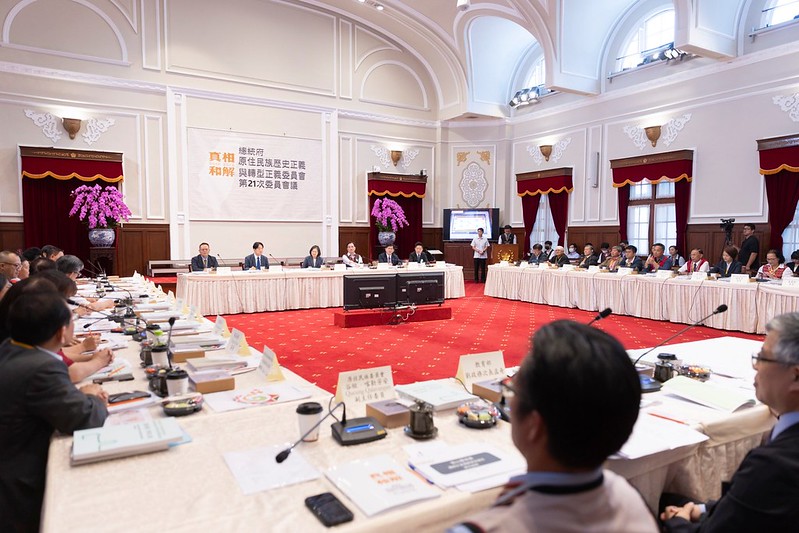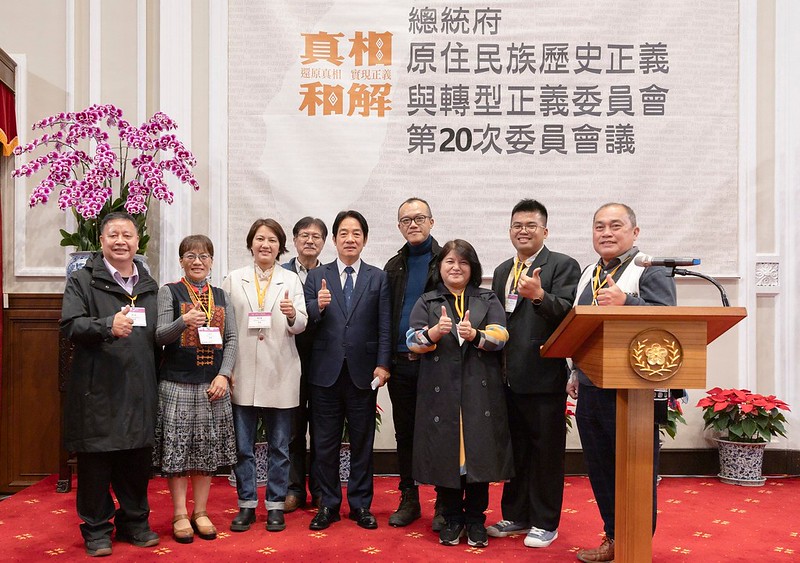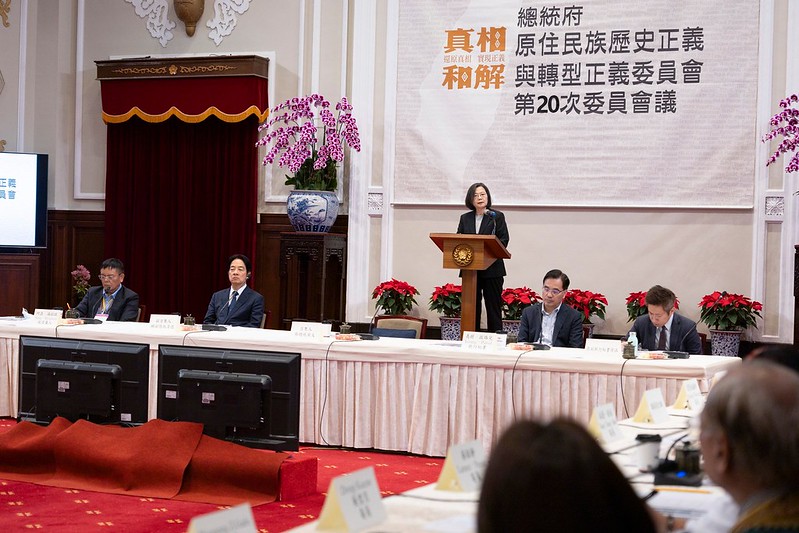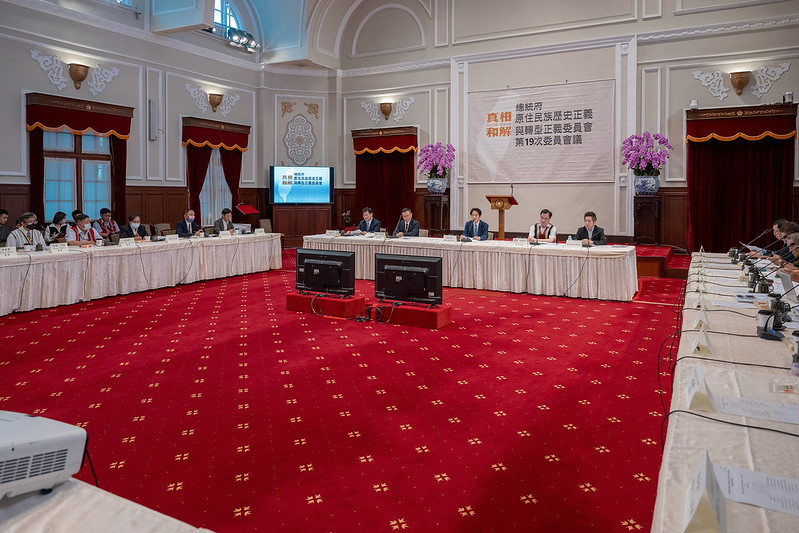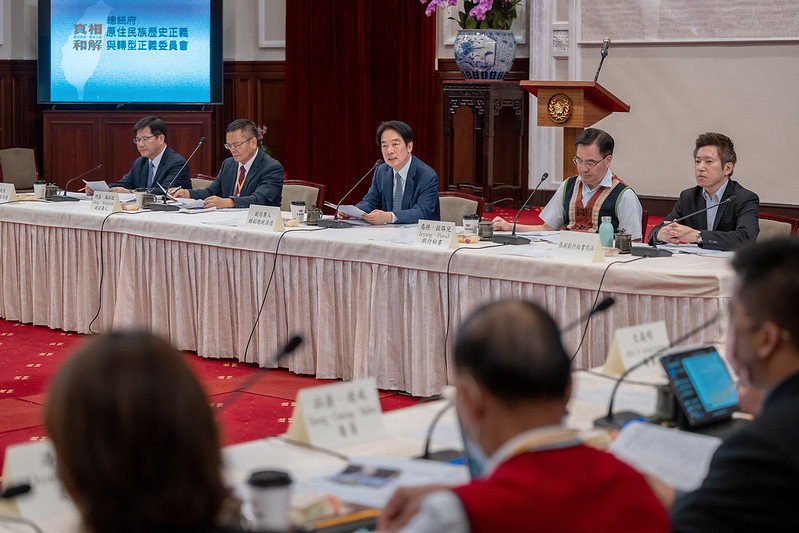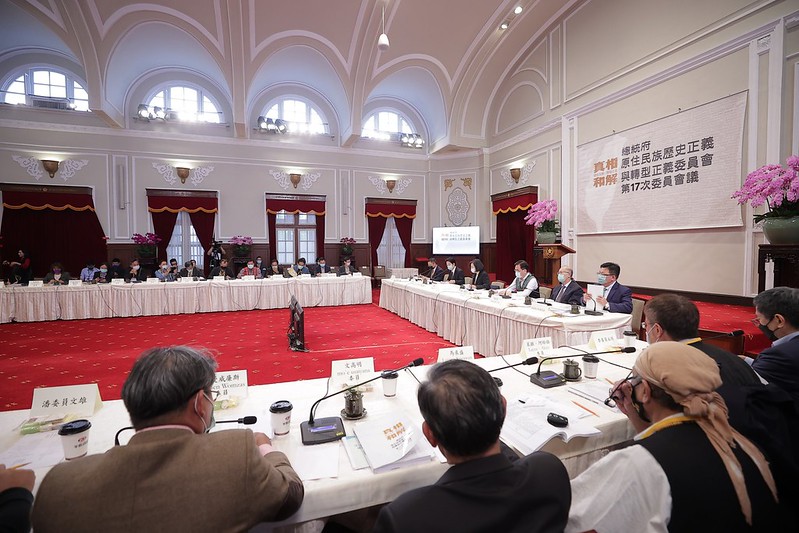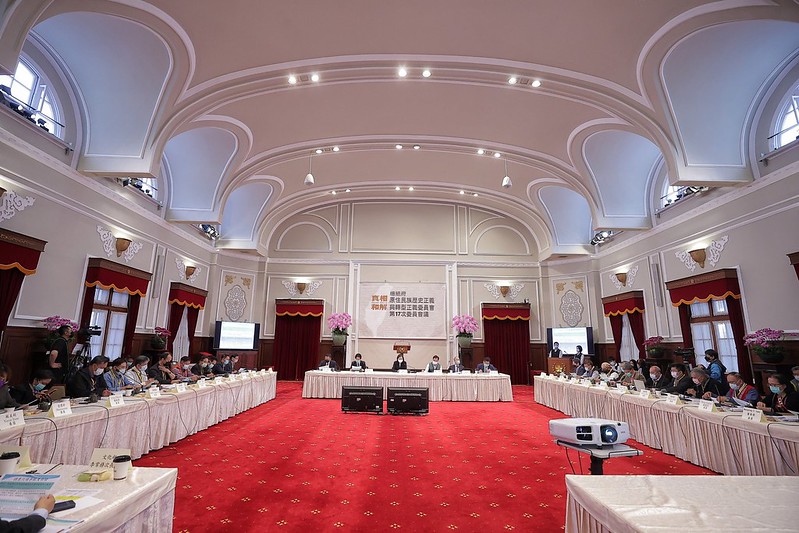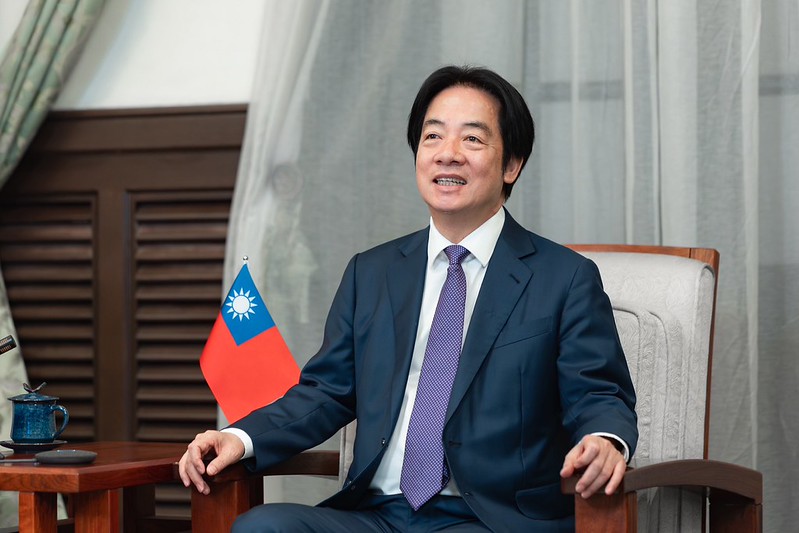News & activities
 News releases
News releases
On March 3, President Tsai Ing-wen convened and presided over the 17th meeting of the Presidential Office Indigenous Historical Justice and Transitional Justice Committee, where she was accompanied by Vice President Lai Ching-te, who attended the two-hour-long meeting as deputy convener.
During the meeting, a committee member suggested establishing a designated task force to promote indigenous peoples self-government. In response, President Tsai said that this suggestion was feasible in principle, but noted that setting up such a task force under the Office of the President or the Executive Yuan touches upon the issue of separation of powers, and the Executive Yuan will have to be consulted on the matter. The president said that she would discuss this proposal with the vice president and Premier Su Tseng-chang (蘇貞昌), and expressed hope of making progress in indigenous self-governance.
The meeting's first briefing was on an investigation into the lease of land reserved for indigenous peoples by the Asia Cement Corporation's (ACC) Xincheng Mountain Mine. Three separate reports on this topic were presented by Minister without Portfolio Lin Wan-i (林萬億), Council of Indigenous Peoples (CIP) Minister Icyang Parod, and Hsu Jing-wen (徐景文), director-general of the Ministry of Economic Affairs' (MOEA) Bureau of Mines. In addition, committee member Teyra Yudaw shared some thoughts on his participation in the investigation.
President Tsai noted that the investigation into the ACC case lasted four years, and that the fact-finding report had now finally been completed and released. The president directed Minister without Portfolio Lin to continue overseeing the work carried out by the CIP and the MOEA, and to coordinate efforts by the Hualien County Government, the Xiulin Township Office, and other authorities, in order to handle this matter in accordance with the four suggestions put forward in the fact-finding report.
The meeting's second briefing was on the implementation of a plan to pay compensation for the erection of power transmission towers on land reserved for indigenous peoples, and was presented by CIP Minister Icyang Parod and Huang Ching-sung (黃清松), director of Power Transmission and Transformation Projects at Taiwan Power Company (Taipower).
Vice President Lai, after taking over the proceedings from President Tsai, commended the MOEA, the CIP, Taipower, the Pingtung County Government, and the Laiyi Township Office for working together toward achieving the government's policy goal of promoting transitional justice with regard to land issues. In particular, he commended the CIP for acting as an intermediary, protecting indigenous peoples' right to reserved land and actively promoting related legislative amendments so that indigenous peoples can lawfully obtain land ownership. The vice president also thanked local members of the Paiwan tribe for their willingness to engage with both Taipower and the government to jointly resolve disputes that have lasted for over 40 years.
Vice President Lai then directed the MOEA to cooperate with Taipower in helping indigenous peoples carry out land purchases to ensure their rights and interests are protected. The vice president also asked the CIP to take the same approach when resolving similar issues, so that transitional justice can be achieved for indigenous peoples throughout the country.
The meeting's third briefing, on the work of Indigenous Historical Justice and Transitional Justice Committee's subcommittees in 2021, was presented by Deputy Minister of Education Tsai Ching-hwa (蔡清華), chair of the Subcommittee on History. The vice president then thanked the various subcommittees for their hard work over the course of the year, and pointed out that their progress in 2021 shows that the focus of the committee has changed over time from historical surveys and fact finding to policy implementation and communication with the public. Noting that progress is indeed being made toward historical and transitional justice, the vice president also asked the Subcommittee on Reconciliation to further use mass media to inform the public about what the committee has achieved, so that more people will come to understand the significance of and core values behind the committee's efforts.
During the meeting, a committee member suggested enacting an indigenous peoples health act. Commenting on this suggestion, the vice president pointed out that the Executive Yuan already held a meeting discussing this subject, and asked Minister Icyang Parod to provide a channel via which committee members with an interest in this legislation can express their views, so that the act can more closely address people's needs. As for the rectification of the official names for the Siraya and Pingpu peoples, the vice president asked the CIP to provide the various directives adopted at meetings of the committee (including directives from the president, as well as directives and other official documents released following meetings of the committee over which the vice president has presided on behalf of the president) to the Justices of the Constitutional Court for their reference.
When issuing his final directives, Vice President Lai noted that the review of the Indigenous Historical Justice and Transitional Justice Committee's undertakings over the preceding year showed that continuous progress has been made in the work of the MOEA, the CIP, Taipower, the Pingtung County Government, the Laiyi Township Office, and the fact-finding mission led by Minister without Portfolio Lin. The vice president added that their work has covered a range of areas, including culture, history, the economy, and the legal system, and expressed hope that all government agencies can continue working together toward the committee's goals.
